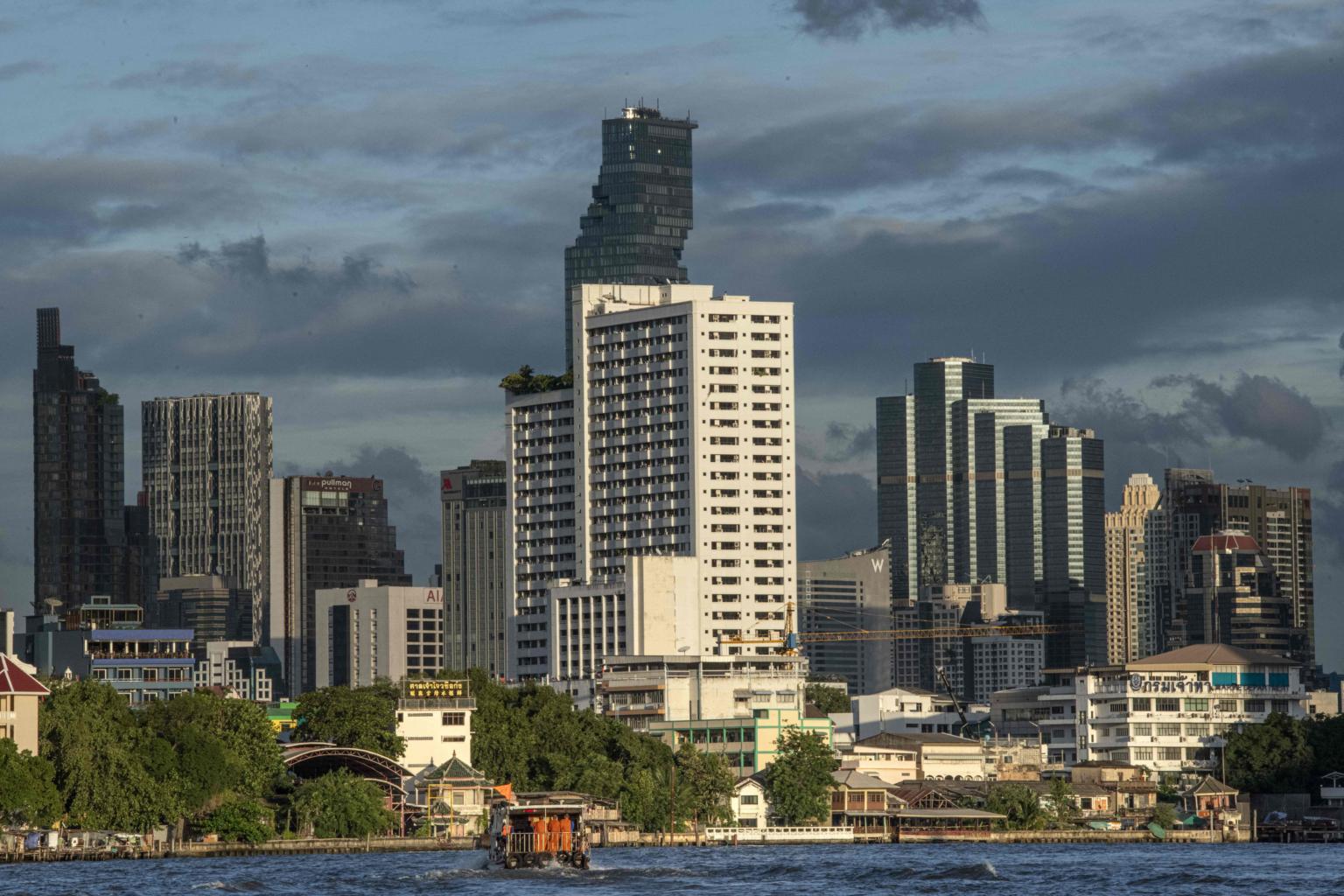Thailand economy grows slower than expected in Q3, 2019 outlook cut again
Sign up now: Get ST's newsletters delivered to your inbox

Thailand's trade-reliant economy has been hit by slumping exports, a surging currency and mixed performance in the tourism sector.
PHOTO: AFP
BANGKOK (BLOOMBERG) - Thailand's economy grew more slowly than expected in the third quarter and the government lowered its forecast for full-year growth as the country deals with the impact of the US-China trade war and a strong currency.
Gross domestic product rose 2.4 per cent from a year ago, the National Economic and Social Development Council said on Monday (Nov 18), below the median estimate of 2.7 per cent in a Bloomberg survey of economists. The council cut its 2019 GDP forecast to 2.6 per cent - from an earlier view of 2.7 per cent-3.2 per cent - and said growth should accelerate to 2.7 per cent-3.7 per cent next year.
Thailand's trade-reliant economy has been hit by slumping exports, a surging currency and mixed performance in the tourism sector. The central bank earlier this month cut its benchmark interest rate to a record low and announced measures to slow gains in the baht, which has been the strongest performer in emerging markets over the past year, rising about 9 per cent.
The council's secretary general, Thosaporn Sirisumphand, called for more stimulus to supplement a US$10 billion (S$13.6 billion) package the government approved in August. The global slowdown, drought and volatility remain key challenges for the economy, he said.
"We need to use all tools that we have as there are still a lot of risks that we can't control," Thosaporn told reporters in Bangkok. "We can't be complacent."
EXPORTS, CURRENCY
While the economy appeared to bottom out in the second quarter - when it grew 2.3 per cent, its slowest pace in nearly five years - the rebound has been more muted than expected, Thosaporn said.
"Baht strength hurt exports and private investment in the third quarter," he said. "We think the baht strength may continue."
The baht was at 30.245 per US dollar as of 10:35am in Bangkok, little changed from before the data release.
"The worst is probably now over for the economy, but a strong rebound is unlikely," Gareth Leather, an economist at Capital Economics, wrote in a research note. "Exports will continue to struggle if, as we expect, global growth slows further. A high level of household debt will also constrain private consumption growth."
The NESDC said exports now are expected to shrink by 2 per cent this year, compared to the 1.2 per cent contraction it forecast in August. The economy should pick up in the final quarter of the year and accelerate into 2020, driven by government stimulus measures, gradual recovery in exports and an improvement in tourism, the council said.


